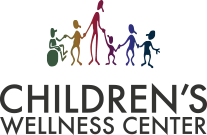Stomach Flu Vs. Flu
The differences between the Stomach Flu and the Influenza “Flu”
People often get confused about the difference between the stomach flu and influenza.
Stomach Flu
The stomach flu actually refers to gastroenteritis or irritation and inflammation of the stomach and intestines (the gastrointestinal tract). Signs and symptoms of gastroenteritis usually consist of vomiting and diarrhea, along with the possibility of stomach pains and a fever. Dehydration is something to keep an eye on for kids with the stomach flu. If you think your child is dehydrated please call our office.
Recognizing Dehydration
If your child has fever, diarrhea, or vomiting, or is sweating a lot on a hot day or during intense physical activity, watch for signs of dehydration, which can include:
•dry or sticky mouth
•few or no tears when crying
•eyes that look sunken into the head
•soft spot (fontanelle) on top of baby’s head that looks sunken
•lack of urine or wet diapers for 6 to 8 hours in an infant (or only a very small amount of dark yellow urine)
•lack of urine for 12 hours in an older child (or only a very small amount of dark yellow urine)
•dry, cool skin
•lethargy or irritability
•fatigue or dizziness in an older child
If you believe your child has the stomach flu our office recommends to try and keep your child hydrated with water, Pedialyte, sports drinks and the BRAT diet. (Please ask your doctor which option is best for your child.) The BRAT diet is a bland diet that consists of foods that are low in fiber. Low-fiber foods were recommended as it was thought that foods high in fiber cause gas and possibly worsen gastrointestinal upset. An acronym, BRAT is a mnemonic for bananas, rice, apple sauce, and toast, the staples of the diet.
Influenza
Influenza (flu) is a contagious respiratory illness caused by influenza virus. It can cause mild to severe illness. Serious outcomes of flu infection can result in hospitalization or death. Some people, such as older people, young children, and people with certain health conditions are at high risk for serious flu complications. The best way to prevent the flu is by getting vaccinated each year.
Signs and symptoms’ of influenza are:
•Fever* or feeling feverish/chills
•Cough
•Sore throat
•Runny or stuffy nose
•Muscle or body aches
•Headaches
•Fatigue (tiredness)
Treatment for influenza consists of:
•Stay home and rest.
•Drink fluids.
•Take medicines for fever such as acetaminophen or ibuprofen.
•Clean your hands often.
•Cover your coughs and sneezes.
If you feel your child may have contracted the flu please call our office as we can test you and give you the proper treatment.
http://www.mayoclinic.org/diseases-conditions/viral-gastroenteritis/basics/symptoms/con-20019350
sr
Leave a reply →


Vitamin a up way lilly http://cialisuyb.com/ , for this shampoo.
Reply →Some kind of sexual stimulation should be applied for an erection to take place with http://cialisyqm.com/ , .
Reply →It sounds like you would meet that definition and http://onlineviphs.com/ , may be useful for you.
Reply →